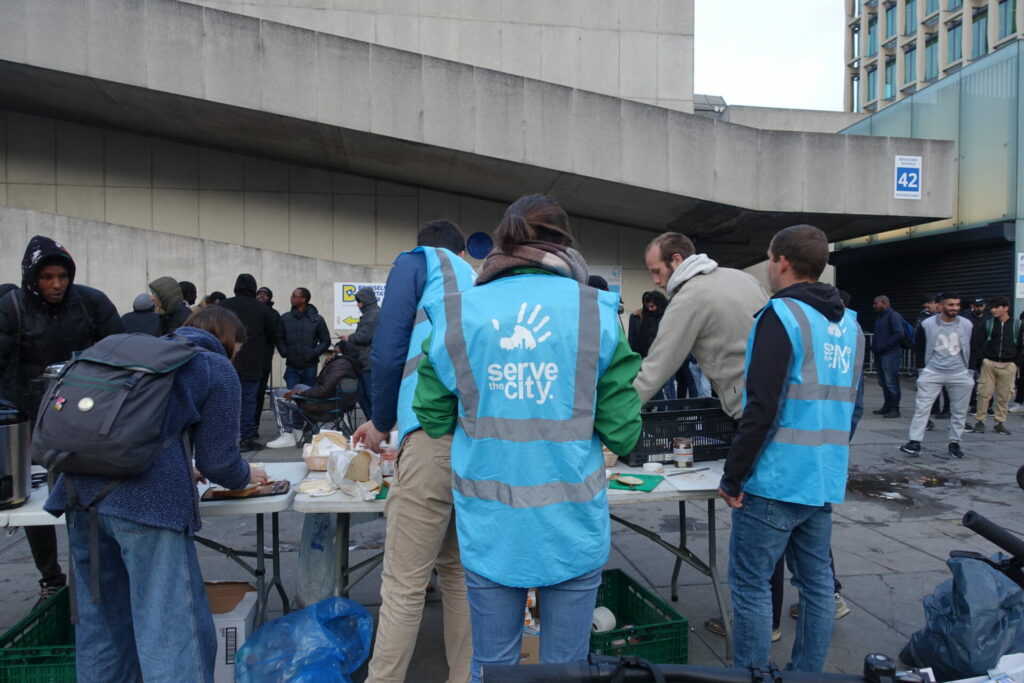As the number of people requesting food aid in Belgium reaches peak levels, charities are struggling to retain enough volunteers to cope with demand. What is behind the decrease in volunteer numbers?
The cost-of-living crisis has caused the amount of people requesting food aid in Belgium to shoot up. Numbers increased by 15% in 2022, going up from 177,238 to 209,450 in less than one year. Over 70,000 of people using food banks are in Brussels.
But ever-heightening energy bills and inflation rates have impacted volunteer numbers too, with would-be recruits prioritising paid work over volunteer positions. According to the barometer of associations published at the end of 2022 by the King Baudouin Foundation, 33% of associations saw their volunteer numbers decline by over 50% since the beginning of the Covid-19 pandemic.
Organisations have been forced to reduce their operations and waste resources as a result. Dominique Watteyne founded Cagettes, a food distribution centre (or frigo solidaire) in Ixelles, in 2018. "On Monday, a volunteer went to collect the leftovers from a reception organised by the ULB, but the next day there was no one to distribute them to our beneficiaries," she told Le Soir. "All that food ended up in the bin."
Not for lack of supply
The willingness to volunteer is there, however. Large associations do not face the same shortages as smaller operations such as Cagettes. The Red Cross, for example, has a 25,000-strong volunteer workforce.
The pandemic clearly raised significant obstacles in terms of organisations being able to take on new recruits, but experts in the sector point to disengagement among young adults as another influential factor in declining volunteer numbers. The King Baudouin Foundation barometer shows that one in three volunteers in Belgium are over 60, while one in five are under 30.
Related News
- Are food waste apps socially conscious? Charities denounce new competition
- Demand for food banks rose by one-fifth in 2022
The key, therefore, is improving engagement among young adults, says anthropology professor at UCLouvain Olivier Servais. "This is a generation that wants to preserve their personal lives," he said. "As a result, high-level commitment is declining among them, with the need to take it easy and leave more room for individual freedom."
Servais points to social media platforms as evidence of strong online support for various social justice issues. For voluntary organisations, it is a question of tapping into this to convert digital activism into much-needed mobilisation on the ground.
Others have noticed a trend wherein young people often favour short-term projects with concrete results, and have tried to accommodate this by implementing volunteering schemes that last 6 to 12 months.

